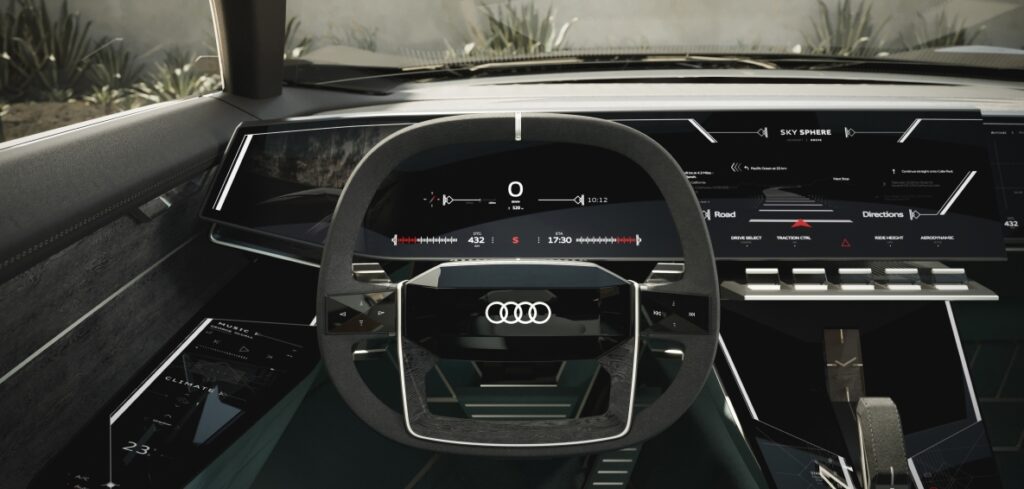Cellular communications specialist Verizon and Audi of America have announced an agreement to bring 5G connectivity to the auto maker’s US line-up, targeted to begin with select models for the 2024 model year.
Audi says the collaboration will bring embedded 5G connectivity into its vehicles and provide the speed and telecommunication architecture necessary for highly personalized and augmented mobile services, new driver-assistance features and connectivity-enabled features for the automated future of driving.
Cellular vehicle-to-everything (C-V2X) technology, which Audi and Verizon are developing for customers, is designed to allow vehicles to respond to other vehicles and infrastructure around them for low-latency alerts and messages. Audi notes that the technology will be crucial to development of automated vehicles and safety advancements, such as providing a fuller view of vehicle environments, beyond what drivers, vehicle cameras and radar systems can observe.
“Audi was the first auto maker to bring in-vehicle wi-fi to customers as well as 4G LTE connectivity in the 2015 A3, and we will be among the first to bring the next generation of connectivity to our customers in the US,” said Filip Brabec, senior VP, product planning, Audi of America. “We value our partnership with Verizon and their eagerness to push the boundaries of what’s possible as cars continue to become even more connected.”
Verizon is also partnering with all three major cloud providers for mobile edge compute services, which can be used to develop further safety and autonomous driving features. Mobile edge computing with 5G connectivity provides the low latency needed for urgent C-V2X communications, i.e., the ability for vehicles to communicate with other vehicles, connected infrastructure, and devices in the environment around them in near real time.
It is also aggressively expanding its 5G network. The company recently deployed new C-band spectrum assets, growing the coverage area of its 5G mobility service to parts of more than 1,700 cities around the USA. In 2021, Verizon’s 5G mmWave cell site deployments nearly doubled the previous two years’ combined.


